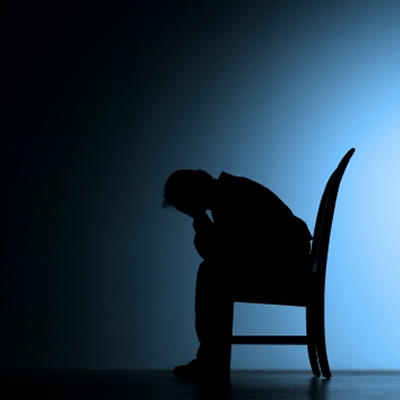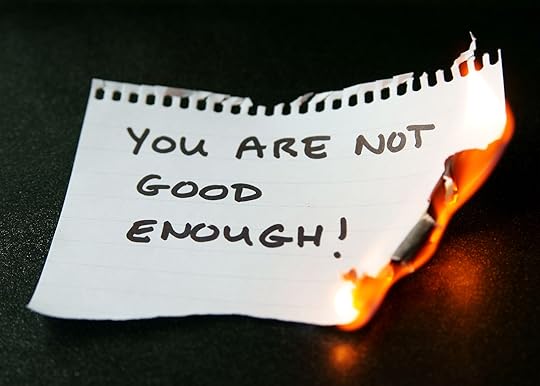Richard Harris's Blog, page 55
June 21, 2015
Senseless Violence, A Church Reopens & A Boy Named Kevin
We need to talk about Kevin. Let me explain.
This morning, Emanuel African Methodist Episcopal Church in Charleston, South Carolina opened its doors to worshippers once again after last Wednesday’s shooting in which nine people were murdered. From the frustration of President Obama…
“We don’t have all the facts, but we do know that, once again, innocent people were killed in part because someone who wanted to inflict harm had no trouble getting their hands on a gun.”
…to the sobering words of Jon Stewart…
“I honestly have nothing other than just sadness once again that we have to peer into the abyss of the depraved violence that we do to each other and the nexus of a just gaping racial wound that will not heal, yet we pretend doesn’t exist.”
…many notable people have spoken out about the mass killing that has touched people around the world.
Who would do such a horrible thing? Apparently an ignorant, malevolent racist. What’s his name? I don’t care. What does he look like? Irrelevant. Why would this 21-year-old “kid” do such a thing? Now that’s a question I’m more curious about. And that’s where Kevin comes in.
As journalists, politicians and pundits struggle with questions about America’s racial divide and whether citizens should have the right to keep and bear arms, I turn to Lionel Shriver and her brilliant novel, We Need to Talk About Kevin. In the award-winning book, Shriver delves into one of the most fundamental questions of the human condition: nature vs. nurture. Was the character of 15-year-old Kevin Khatchadourian born a malicious, sadistic killer, or was it the fault of his mom, who “never really wanted to be a mother,” and his father, who mollycoddled and turned a blind eye to his son’s questionable behaviour?
In my humble opinion, Shriver does a masterful job of letting the reader decide the answer to this ambitious question. There are a number of famous novels that have also featured this theme (Lord of the Flies, A Clockwork Orange, and Harry Potter and the Philosopher’s Stone are works often mentioned in this same vein), but it was We Need to Talk About Kevin that inspired me to revisit this daunting question more than any other story in recent memory.
And now, as countless people come together to pray for and remember the victims in South Carolina today, let us also cling to the belief that we are – and will remain – “unconquered” as we move forward, just like William Ernest Henley so eloquently wrote in this 1875 poem:
Out of the night that covers me,
Black as the pit from pole to pole,
I thank whatever gods may be
For my unconquerable soul.
In the fell clutch of circumstance
I have not winced nor cried aloud.
Under the bludgeonings of chance
My head is bloody, but unbowed.
Beyond this place of wrath and tears
Looms but the Horror of the shade,
And yet the menace of the years
Finds, and shall find me, unafraid.
It matters not how strait the gate,
How charged with punishments the scroll,
I am the master of my fate:
I am the captain of my soul.
June 14, 2015
Bibliotherapy: It’s the Real Deal
In a piece for The New Yorker titled “Can Reading Make You Happier?” Ceridwen Dovey opined that “Reading fiction makes me lose all sense of self, but at the same time makes me feel most uniquely myself.” Dovey then goes on to write about bibliotherapy, a term coined in 1916, but a concept going as far back as the Ancient Greeks, who, above one library in Thebes, had a very simple yet elegant inscription which read “A healing place for the soul.”
Reading is good for you. Anyone who consumes the written word knows this intrinsic maxim. But now science has weighed in on the subject. As Dovey put it:
Since the discovery, in the mid-nineties, of “mirror neurons”—neurons that fire in our brains both when we perform an action ourselves and when we see an action performed by someone else—the neuroscience of empathy has become clearer. A 2011 study published in the Annual Review of Psychology, based on analysis of fMRI brain scans of participants, showed that, when people read about an experience, they display stimulation within the same neurological regions as when they go through that experience themselves. We draw on the same brain networks when we’re reading stories and when we’re trying to guess at another person’s feelings.
However, does what we read matter as much as the fact that we are reading at all? Dovey goes on to add:
Other studies published in 2006 and 2009 showed something similar—that people who read a lot of fiction tend to be better at empathizing with others (even after the researchers had accounted for the potential bias that people with greater empathetic tendencies may prefer to read novels). And, in 2013, an influential study published in Science found that reading literary fiction (rather than popular fiction or literary nonfiction) improved participants’ results on tests that measured social perception and empathy, which are crucial to “theory of mind”: the ability to guess with accuracy what another human being might be thinking or feeling, a skill humans only start to develop around the age of four.
Virginia Woolf, a well-known bibliophile, was perhaps one of the earliest novelists in the English language to understand and reflect this empathy with respect to the psychological impact of war on the individual when she wrote Mrs. Dalloway, providing readers with an unflinching view of the trauma so many young men were going through upon returning home from World War I. As Woolf once put it, a book “splits us into two parts as we read…the state of reading consists in the complete elimination of the ego [and a] perpetual union [with another mind].”
Personally, I think Dovey summed up this whole fiction/bibliotherapy analysis in her article quite nicely when she wrote, “So even if you don’t agree that reading fiction makes us treat others better, it is a way of treating ourselves better.”


June 3, 2015
Mental Illness: In Writing, In Literature & Online
Author of Drunk Mom and fellow Torontonian Jowita Bydlowska had another article appear in the Toronto Star on mental illness, specifically the happy personas that cover up a depressing reality through social media venues like Facebook. It’s a well-written piece and an eye-opening look into that elephant in the room which, even today, goes largely unspoken about, unnoticed and/or unacknowledged. More worrisome is that in an age when the stigma is slowly — ever-so-slowly — lifting, many of us still put on the façade that all is okay when in reality this could not be further from the truth. So why do we still hide behind a veneer of “happiness” and “unbridled joy,” especially in public forums, where I’m-so-happy-I-could-smile-through-your-freaking-screen-right-now selfies abound like fallen leaves on a late-autumn morning?
This got me thinking about the issue of mental health and how it’s been addressed in literature over the years. Novels which spring to mind include Madame Bovary, Crime and Punishment, The Catcher in the Rye, and The Bell Jar. It also reminded me of a powerful story (now memoir) of an otherwise sane person mentally breaking down I once read in Harper’s Magazine by Eleanor Cooney called Death in Slow Motion: A Descent into Alzheimer’s, in which she wrote (no surprise that Amazon readers who were moved by Cooney’s memoir also loved Still Alice) a line that still haunts me to this day (paraphrased): I now understand how people can wear an overcoat all day and drink whiskey for breakfast.
Fortunately, many societies are now finally recognizing that mental illness is exactly that: an illness. It’s not something to be made fun of or looked down upon. Although people from the time of Sophocles more than two millennia ago have been writing about mental anguish/illness, it seems we still have a ways to go in understanding that even those among us who may appear strong could in fact be reaching out the only way they know how, not through self-reflective writing or counselling, but through happy-go-lucky mediums like Twitter, Instagram and Facebook.


May 29, 2015
Q: Can a Novel Be Too Long?
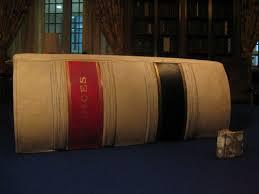
A: Only if it sucks.
Since when did people (including editors, publishers and agents) get so uppity about high-page-count novels? Last time I checked, A Suitable Boy (1,488 pages) is still a classic in the English-language literary canon. War and Peace (1,440 pages) is considered a half-decent book by two or three people. For others, Les Misérables (1,500 pages), Atlas Shrugged (1,088), and Infinite Jest (1,104 pages) represent some of their favourite stories.
“But those titles are too old, crusty and dense,” I hear readers saying as they glaze over these words with goldfish-like eyes.
Q2: So why, then, have 700-, 800- and even 900-page novels gone on to achieve such commercial and critical success in the last year, including two Pulitzer Prize-winners (The Goldfinch and The Luminaries)?
A: Because they don’t suck.
As per an article on Vulture.com, “When Did Books Get So Freaking Enormous? The Year of the Very Long Novel,” it would seem that very, very, very long books can do well, even in today’s hyper-uber-fast society of eight-second attention spans. And yet I still hear people complain about “tomes” and “paper (stack) weights” and “literary dumbbells” when they are handed a book longer than The Prophet.
The reasons cited are various and compelling:
1) “I’m busy.” Really? You must have bad time management skills.
2) “I have kids.” Interesting. So do a few billion other people on this planet.
3) “I can’t look at a page without getting sleepy./I don’t know how to read./Words are smaller these days than in the past./Save the trees!” Buy the audio book.
4) “I’m too tired to…and, you know, what with my foot fungus…so that the eggs are flipped facing the sun, with an orange glass of juice and a pair of toasts…and the peacocks running around my house are so distracting!” (Silence…then crickets…then thunder.)
Celebrate bigness. Wrap your arms around big word counts. Don’t be scared to have the same book on your nightstand for months on end. Reading’s not a race. It’s a journey, a (usually) solitary experience that enriches the soul, broadens the mind and fills the human spirit with a sense of wonder unlike any other artistic medium.
Not convinced yet? Then remember this mantra: Books are sexy. Reading is cool. Therefore, as such, and as a result, reading thick-ass books makes you sexy mild.


May 22, 2015
Lola Carlyle’s 12-Step Romance
Congratulations to my friend Danielle Younge-Ullman and the publication of her second book, Lola Carlyle’s 12-Step Romance. I had the honour of being at her first book launch in New York City a few years ago, and will now have the honour of hosting her at my book club next month, where she will read excerpts from my her book to Curling Was Full.
If you want to meet the YA sensation in person, she’ll be signing copies of her book at Toronto’s Yorkdale Indigo on Saturday, June 13 from 1-4 p.m.


“There’s work and love and art and art usually comes last”
Get confident, stupid!
Ah, yes, the immortal words of Troy McClure. And who wouldn’t have chutzpah with a smile like Troy’s! (Not to mention the rather handsome collection of pullovers he donned, which can now be found somewhere on the Stuff White People Like online showroom of sumptuously stylish sweaters.)
Lindsay Merbaum wrote an interesting piece in Electric Literature called “Not a Real Writer: How Self-Doubt Holds Me Back.” Self-confidence is one of those illusive and intangible parts of the human anatomy that everyone wants yet all of us so desperately lack in at least some areas of our lives. For many it’s public speaking. For a lot of us it’s expressing ourselves, whether through our fashion our words our actions or our opinions. For Lindsay Merbaum – high school poet extraordinaire, Sarah Lawrence graduate, and recipient of an MFA from Brooklyn College, where she studied under Michael Cunningham – it’s self-doubt with her writing because she’s not a “real writer.”
Wait. Hold the bacon and mayo a second.
If someone like Lindsay Merbaum can doubt her own writing, who among us is immune from self-doubt when it comes to anything we do? I suppose the easy answer would be, well, nobody. I’ve always found it interesting how the most beautiful women I’ve met are the most insecure about their looks; how the self-made entrepreneur couldn’t stir a single emotion in me when they gave a presentation; how those with toned, drop-dead bodies can’t help saying how “fat” and “out of shape” they are; how the nicest, kindest, most humane people I’ve had the good fortune of meeting believe – truly and for trues – that they are worthless. Alternatively, why is that those who seem to exude the most confidence have a special place all their own in the Deuchery Hall of Fame?
Confidence is electric. It’s alluring. It draws us to those who have it in spades like Poo to honey. So why, then, do many of us have such a difficult time harnessing this amazing X factor which can do everything from make us more friends to landing a better job to having…I don’t know…clearer, more blemish-free skin?
Let’s return to the case of Lindsay Merbaum for a moment, shall we? There were a couple of things she mentioned in her piece which resonated with me and I’d like to address.
How do you justify the time devoted to writing when it doesn’t put food on the table, when you don’t receive much recognition for your efforts?
Because, to quote Mr. Jerry Scientology, it completes you. Writing makes you a better person. Pure and simple. It is to spiritual growth what drinking a kimchi, avocado, and cranberry smoothie is to a health nut. Well, sort of. As for the recognition part, if you can please yourself, that’s one more person than the average Joe/Joanne can do.
I have yet to publish a book. The reason for that is, in part, life gets in the way.
Right. That pesky and pernicious little thing called life. It doesn’t come with a manual or set of instructions. First rule of Fight Club: There’s no such thing as Fight Club. Second rule of Fight Club: Life will always get in the way. Remember that wicked, kick-ass ski trip you were going to take, only to break your leg the day before you left? That interview you prepared for, only to have it cancelled on you at the last minute? That guy you were going to impress LIVE AND IN THE FLESH after totally – so totally – connecting with him online, only to have Dirk Deuchebag not show up on your first date? (Note to self: no more online dating experiences.) Remember that Golden Rule of Fight Club so often forgotten by the best of us in our quest to conquer life? It’s not the strongest, most talented people who thrive and succeed; it’s those of us who know how to adapt to our environment most effectively that matters most.
When you have a better chance of getting into Harvard than a top-tier literary magazine, hope is no small thing.
True dat. Pandora would wholeheartedly agree. Hope is a good thing, a well of vitality in the barren, desert-like wintertime of our lives. Cling to it like a baby does a mother’s bosom when you have to, and otherwise don’t worry about how others measure success. A completed manuscript is still a completed manuscript, published or not. It’s an achievement. You rock, despite what the naysayers might think.
As for the title of this post, which I took from Ms. Merbaum’s piece, I’m not sure I would rank it quite the same way. Art can be your work, and you can most definitely love what you do. Ergo, you can love what you do for a living and celebrate the medium in which you do it.
Or, as is said in a very touching video called “The Meaning of Life,” love yourself first and foremost. The rest will fall into place soon enough. And that includes, but is not limited to, confidence.


May 14, 2015
Can You Concentrate Long Enough to Read This Title in Its Entirety without Blinking or Looking Away or Yawning?
If the answer is yes, then congratulations. You may just have a longer attention span than the average Canadian. Or a goldfish.
According to a recent study carried out by Microsoft, the average Canuck had an attention span of 12 seconds in 2000. Fifteen years later, that number has fallen to 8 seconds, a full second less than a goldfish.
I was actually thinking about this subject last night while talking to a friend who has consciously chosen not to buy a TV or even sign up for Netflix! The audacity! Or perhaps I should say the sagacity! His argument was that he found it hard to concentrate on something for two full hours that wasn’t capturing his attention. And this from a man who can sit down and read for hours on end, and whose “living room” is actually closer to a library than a room in which you hang out with friends and sip on deliciously delicious libations. I think my friend would make Alberto Manguel proud.
So, after a grueling day of work, that same friend inspired me to sit down and open up a book, even though my eyelids felt like they were glued shut. It’s a work of non-fiction about math. It’s got formulas. It’s got big words I can’t pronounce. It’s written by a professor whose IQ is probably somewhere near the height of the CN Tower. The book is Jordan Ellenberg’s How Not to Be Wrong: The Power of Mathematical Thinking. By all rights, I should have put the thing down after 7.9 seconds (being a good Canadian and all, eh?) and fallen asleep. But guess what? It’s riveting. It’s electric. It’s full of interesting anecdotes and theories and insights about things I had never considered. Ultimately, I had to drag myself away from the book and turn off the light.
Why, then, do so many of us (especially those wily North-of-49ers) have such a tough time concentrating for more than eight seconds, let alone minutes or hours on end to read a book?
As per Microsoft’s study:
“Canadians with more digital lifestyles (those who consume more media, are multi-screeners, social media enthusiasts, or earlier adopters of technology) struggle to focus in environments where prolonged attention is needed.”
It’s easy to point the finger at technology, social media, New Age brain farts, Microsoft et al, but the truth is that it comes down to us as individuals and where we put our priorities. The fact that our attention spans are falling is our own fault. No matter how many D’s you add to ADD (or whatever it’s called these days), the ability to concentrate on one task at hand for a little longer than eight seconds falls on us.
Read the full article on the Microsoft report here.


February 9, 2015
The Misconception about Writer’s Block

“The words are there…formed from thoughts, opinions, dreams, emotions.
The fear that what will be said is not interesting or intelligent or fascinating is usually the problem.”
I came across an article recently that addressed something I’ve long thought about: Does writer’s block really exist? Like really, really, really exist?
According to a piece in The Marketing Square, the answer is a resounding NO! In fact, the author went so far as to say that writer’s block is a misnomer.
I couldn’t agree more.
As per the article, if you feel you’re suffering from writer’s block:
“The best thing to do is to put the pen down, get away from the computer.
Take a break and come back.
If it’s a good piece it will come to you.”
Margaret Atwood once opined that if she waited to write the perfect sentence every time she put pen to paper, she would never write a thing.
I think the same can be said for how we express ourselves when speaking with others. If you keep waiting for the perfect thought or idea to come to you – and then by extension the best way to verbalize it – you will remain a very quiet person. Writing is no different. Sometimes you just have to get the words out. Truthfully, they’ll probably suck the big one at first, which is why we go through revisions, edits and then proofreads.
You either live to write and write to live or you don’t. And if you don’t, that’s fine. Don’t push what’s not there. As they say, you can’t draw blood from a…er…computer? A pen? A piece of paper? Write what comes naturally and don’t force it. As I like to tell myself when I write: Be true, be you. Everything else will fall into place in time.
I’ll end this post by quoting someone who once said, “Writer’s block is not the problem. The problem is not writing.”

January 22, 2015
Writing Is Healthy!
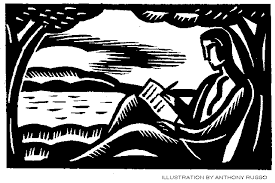
The New York Times just published an article on writing. Who the what the where?
I know. Shocking. And shocking results. Writing is good for you. Like eating avocados and pomegranates. Or spending time with friends and family. Where will this madness end!
Although the following quote does not read well (ironic considering it’s on writing), I think it captures the spirit of what writing in any form does to you: “When you get to that confrontation of truth with what matters to you, it creates the greatest opportunity for change.”
For centuries, the (very few) literate were encouraged to write. Part of this had to do with penmanship, and part of it had to do with – well – literacy. But it fueled some of the greatest thinkers of our world. Da Vinci scribbling notes about objects that were centuries beyond his time; Sylvia Plath wrote furtively to deal with mental health.; Dante wrote The Divine Comedy in the wake of losing his beloved Beatrice; Orwell wrote when up against the fight of his life, which he would lose, as he finished the final pages of 1984.
We don’t need to write for any other purpose than to communicate, sometimes with ourselves, and sometimes with others. We write because it is spiritual. It’s holistic. It’s healthy. It’s good. We write because it’s an avenue to express our thoughts.
And in the end, each and every one of us wants a means to express ourselves.
Click here to read the full article.

January 11, 2015
Murakami Haruki Has Advice to Give
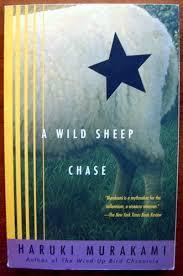
Ah, yes. Murakami Haruki. The giant of Japanese literature after Nobel laureates Kenzaburo Oe and Yasunari Kawabata. He has inspired an entire generation of novelists, including the illustrious David Mitchell. I was introduced to his books through a friend in 1998 with Hardboiled Wonderland and the End of the World. I never looked back.
Since then I’ve read almost everything of his translated into English. And while Murakami fans like myself will usually agree that The Wind-up Bird Chronicle is his opus, for me it was A Wild Sheep Chase that showed me how special he was as a writer.
The Rat. Beautiful ears. A star-shaped emblem on a sheep in nowhere Hokkaido.
It was innovative literature that took creativity to a new level.
So innovative, in fact, that when Murakami won the Yomiuri Prize (Japan’s Pulitzer/Booker/Giller Prize) for The Wind-up Bird Chroncicle, Kenzaburo Oe could barely conceal his vitriol. At the awards ceremony, Oe and Murakami actually met (Murakami in standard running shoes for a black tie affair), and as Murakami’s long-time translator Jay Rubin recounted in his excellent biography, Haruki Murakami and the Music of Words , it was an awkward moment to say the least. It was a changing of the guard in Japanese literature.
Well, now the usually media-shy Murakami has decided to write a column in which he will answer people’s questions in a range of languages, including English. I’m not sure how many fans he will be able to respond to as a superstar writer, but if you haven’t read any of his books, do so immediately. Here’s my top 5:
1. The Wind-up Bird Chronicle
2. A Wild Sheep Chase
3. South of the Border, West of the Sun
4. Hardboiled Wonderland and the End of the World
5. Hear the Wind Sing (his first literary effort and pretty much only available on eBay through an auction)
Click here to learn more about links to Murakami’s new advice column.






